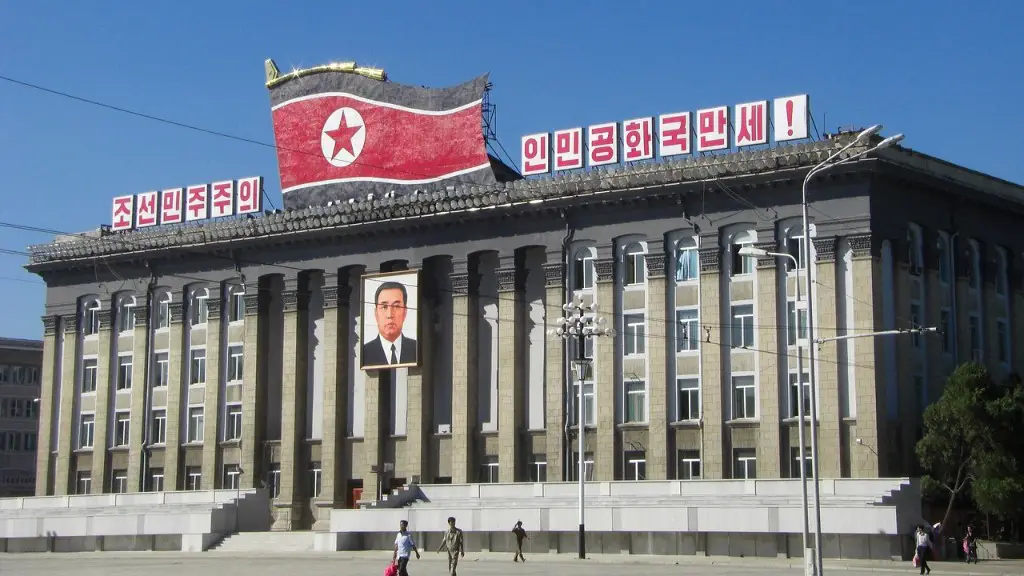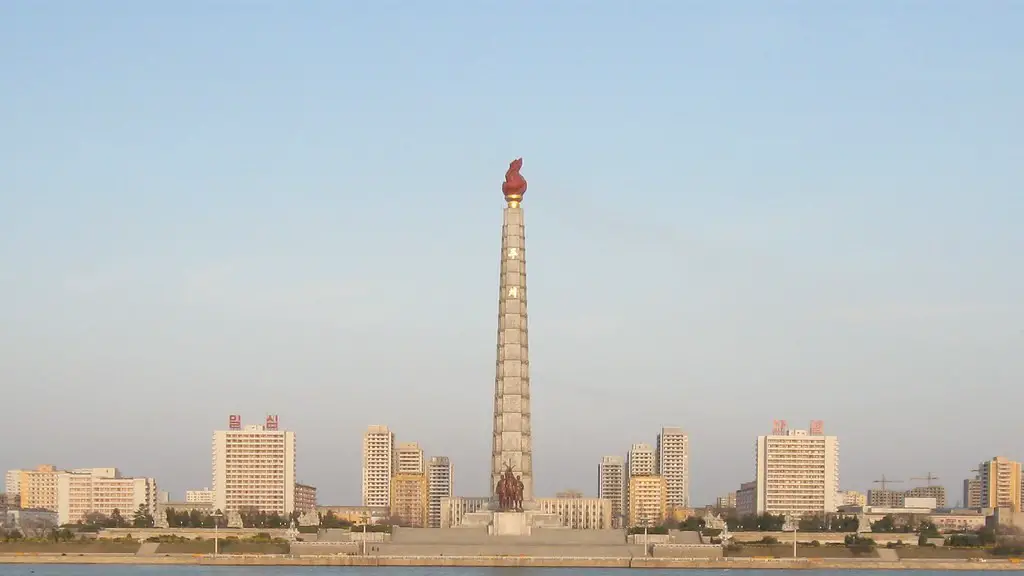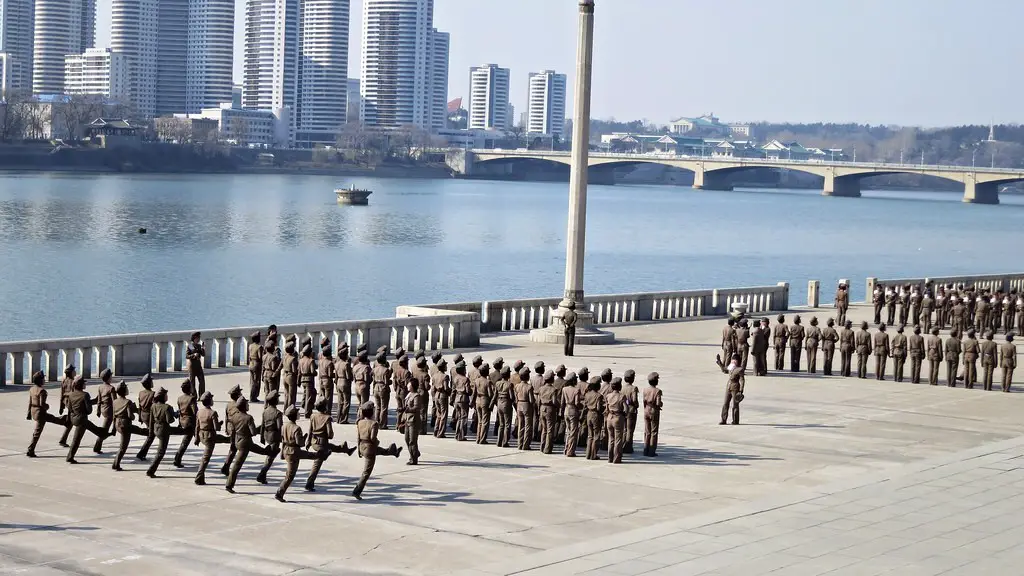North Korea is a country shrouded in mystery. Since its founding in 1948, the nation has been led by the Kim family dynasty, complete with a distinctive cult of personality cult and a faith in the Communist principles of Juche. North Korea has developed an alarming and unchecked nuclear program despite numerous United Nations sanctioned attempts to reign in the country’s ambitions. The rogue nation has become an international hot topic as U.S. and South Korean leaders warn that North Korea is “threatening to do” more with its nuclear capabilities.
News of North Korea’s growing capability has brought international attention to the potential threat posed by Kim Jong Un, the nation’s current leader. Recently, he has claimed that a new intercontinental ballistic missile (ICBM) could be ready for testing. In early 2017, reports from the Korean Discovery Center and local Korean newspapers claimed North Korean scientists successfully built a hydrogen bomb-armable missile. North Korea also announced in 2017 that it completed its sixth underground nuclear test.
Experts warn of North Korea’s potential for real and lasting damage. In December 2017, Geoffrey Kemp, director of Regional Strategic Programs at the Center for the National Interest, said in an interview with CNN, “It is quite possible the North Koreans will have an ICBM with a nuclear warhead, this year. That means that if the supreme leader, Kim Jong Un, chooses to launch an offensive missile, the continental United States is his primary target,”. He goes on to explain that the West Coast of the United States is within range of North Korea’s weaponry.
The nature of Kim Jong un’s current ambitions remain difficult to predict, as the country is renowned for its secrecy and unpredictability. The US and South Korea have undertaken new peace proposals in the form of diplomatic talks and Chinese sanctions to appease North Korea, but the international community has yet to change Kim Jong un’s aggressive stance. Questions about North Korea’s potential for a “dangerous miscalculation” breeds even more concern, as reported by The Economist.
The U.S. has taken a hardline when it comes to North Korean aggression, but any unilateral military action by the U.S. risks further escalation from North Korea. In a recent tweet from the President, Donald Trump has written that North Korea’s leader “is playing a very dangerous game.” Increased tension may lead to the use of military power, resulting in a retaliatory strike or a full military conflict with the United States and its allies.
It is clear that future threats from the isolated nation should not be taken lightly. South Korea and Japan, two of the United States’ closest allies in the region, are particularly at risk, as they are located much closer to North Korea. Kim Jong un has been known to make unexpected decisions, and has proven that he is capable of doing international relations on his own terms. Thus, the future hangs in the balance for the United States, its global allies, and North Korea.
Geopolitical Implications
North Korea’s nuclear ambitions create geopolitical implications. If North Korea were to launch nuclear weapons, it would result in a direct attack against the United States, South Korea, and Japan. This would result in military conflict and could lead to the use of nuclear weapons, resulting in large-scale destruction. It is also possible that China and Russia could become involved in the conflict, as the two countries are close allies of the North.
This international political situation is further complicated with the involvement of the United States’ new President, Donald Trump. President Trump has declared that the U.S. will not negotiate with North Korea, however could that approach feed into Kim Jong Un’s stance or force the U.S. into a corner? Many of the “realists” in the political community worry that the President’s hard-line rhetoric could provoke Kim Jong Un, when the international community would be better served with negotiations.
China is also a powerful player in this international dispute. It is believed that China has a strong interest in maintaining North Korean nuclear weapons as it allows them to leverage their strength against imminent nuclear threats from the North. North Korean allies China and Russia want to ensure a secure balance of power in the region and to protect their people from a nuclear fallout. If North Korea were to launch a nuclear weapon, half of the population living near the Korean peninsula would be exposed to dangerous radiation.
The international community has no good solutions to this conflict. Sanctions from the United Nations have thus far been unsuccessful in convincing North Korea to abandon its nuclear ambitions. Military action is another option, however this scenario would lead to catastrophic events such as war, destruction, death and injury. The only hope to avoid such an event is through open dialogue and negotiation, whether or not it is with the current U.S. administration or a future one.
International Reaction
On the surface, the news of North Korea’s nuclear ambitions was a shock to the entire world. Leading political figures from all countries spoke out against North Korea and its leader, Kim Jong Un. Chinese President Xi Jinping publicly condemned North Korea’s actions and stated that China would “never allow war or chaos to occur on the Korean peninsula.”
The international community was also stunned by South Korea’s diplomatic engagement with North Korea. It was a stark contrast to the long-standing South Korean stance that held the nation at arm’s length from its northern neighbor. The historic meeting between the two Koreas in late April 2018 served to ease tensions between the countries and introduced a sense of hope for the future.
The West has also responded to the news with mixed reactions. The US government has adopted a hardline stance towards North Korea, calling for even more stringent sanctions, yet the White House has also expressed a desire for peace between the two nations. Current US president, Donald Trump, has levied harsh words against North Korea’s leader, Kim Jong Un, but he has also proposed dialogue between the two nations in order to find a peaceful resolution.
The United Kingdom, France, Canada, Germany, and other countries have also expressed concern about North Korean actions. They have advocated for increasing economic sanctions against North Korea as a way to dissuade them from continuing their nuclear weapons program. Despite their diplomatic attempts, the international community has yet to find a resolution to the crisis.
What Others Are Saying
The news of North Korea’s increasing nuclear capabilities has prompted many to voice their opinion on the matter. Madeline Albright, former US secretary of state, said, “I think that the way this is being handled, frankly is not handling at all, simultaneously to have all of our options on the table.” Albright suggests that the US is not adequately tending to the North Korean situation and that, together, with the global community all options must be pursued to “find a better way to reengage North Korea, and move away from ever more sanctions and threats of military action.”
Many experts are in agreement that the only way to successfully negotiate with North Korea is through diplomatic dialogue. According to Sung Han Kim, South Korea’s ambassador to the US, “diplomacy and dialogue leading to a win-win problem-solving strategy is the only path for lasting and durable peace.” The ambassador preaches for a more diplomatic approach in order to de-escalate the tension.
North Korean citizens are also reacting to the escalating situation. There have been reports of growing dissent among North Koreans as they become aware of their leaders’ ambitions, as well as the economic struggle the nation faces because of the heavy sanctions imposed on them by the international community. In response to the situation, some have resorted to buying silver and gold coins as a form of security, while others have taken measures to leave the country while they still have the chance.
Impact on Global Security
North Korea’s unchecked nuclear ambitions have potential for global implications on security. Since the 1990’s North Korea has worked closely with Pakistan, Iran and Syria to develop, build and finance its nuclear weapons. It is reported that the North is also supplying its technology and resources to other countries, such as Burma and North African nations. This presents the risk of nuclear weapons potentially being used for terrorism and not just for military action between two nations.
Furthermore, nuclear weapons are incredibly expensive and could prove difficult for North Korea to maintain its current level of development given its current economic situation. It is estimated that the North spends around 25% of its GDP on its military expenditure and this number is only likely to increase. This could have a detrimental effect on the nation’s economic productivity.
The world has become increasingly concerned about the security of their countries due to North Korea’s refusal to abandon its nuclear program and the extent to which it has gone in developing weapons of mass destruction. It remains to be seen how world leaders will respond to the challenge posed by North Korea’s nuclear ambitions and how this situation will ultimately be resolved.
Cyber Threats
North Korea is also known for its advanced cyber capabilities, which has given the nation another edge in its fight against the world. Cyber threats from North Korea can range from espionage to stealing money from banks to more sophisticated forms of cybercrime. The North is widely believed to be behind some of the most significant cyberattacks in recent times, including the WannaCry ransomware attack in May 2017 and the Sony Pictures hack in 2014.
The WannaCry ransomware attack targeted over 230,000 computers in over 150 countries and disrupted government, business and public services alike. It is estimated that the attack caused over $4 billion in damages and many are linking it to North Korean ‘Lazarus group’. North Korea also attempted a major bank heist in 2016, attempting to steal around $1 billion from the Bangladesh Central Bank. This attack highlighted the potential threat posed by North Korea’s advanced cyber capabilities.
In response to North Korea’s cyber threats, the US, South Korea and Japan have conducted joint military exercises aimed at building defence against cyber attacks from North Korea. It is also hoped that increased sanctions and diplomatic talks will be effective in pressuring North Korea to abandon its cyber warfare program.
Final Thoughts
It is clear that North Korea’s increasing nuclear capability has the potential to cause enormous damage and disruption in the international community. While the isolated nation has rarely used force in the past, its repeated threats of military action have put the world on alert. The international community must now decide how to move forward in their deal with North Korea and take measures to ensure global security.





